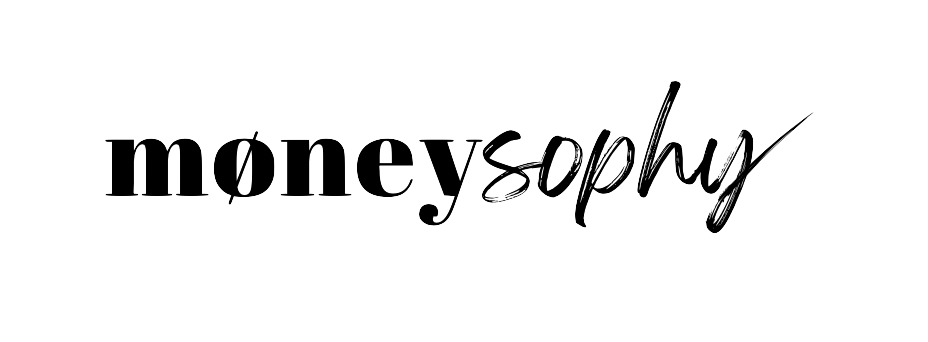Starting with the end
Reading time: 3 minutes
Do you feel trapped in your daily routine?
Have you ever felt like you’re sprinting toward a destination, only to realise you’re on the wrong path?
For years, I let work define me: every decision, every sacrifice was for the job. But one day, I woke up and realised I’d been climbing the wrong ladder.
I was chasing success on someone else’s terms, not mine.
My journey of course-correcting was long, very long, but it was worth it.
Starting with the end in mind has helped me ensure the path I’m on is leading me to where I really want to go, whether in life or finances, aligned with my personal vision.
The wrong map to the wrong destination
“What do you do in life?”
For the longest time, that was my go-to icebreaker question. Work was the centre of my world. I felt most at ease discussing work challenges and how to tackle them. My life decisions revolved around the needs and expectations of my job. I was obsessed with work role models, career opportunities, and how my boss viewed me. Work always came first—over family, friends, vacations, and health.
I was constantly busy, trying out different productivity hacks to be even more effective, striving to be the best at my job, until it just stopped fulfilling me.
After all those hours climbing the corporate ladder, only to find out I was leaning against the wrong wall.
Somehow, I had let my job define my identity.
It felt like I was just going in circles, but the truth was:
I was using the wrong map the whole time—like trying to navigate London with the Michelin paper maps of New York!
And honestly, I didn’t even want to go to London; I wanted to be in Hong Kong.
I realised that all the effort and hustle was leading me somewhere I didn’t even want to go, and it was time to change course before I lost sight of where I truly wanted to be.
Start with the end
Instead of getting stuck in your daily routine, try this exercise: start with the end in mind.
What do you really want to achieve?
To answer this question, you can try with this legacy exercise.
Take a moment and fast-forward to the end of your life story. Imagine you’ve got 20 years left— How do you want people to remember you?
At Work: You're at your retirement party, and people are talking about your achievements. What do you hope they're saying?
In Your Family: What feelings do they carry when they think of you? What stories do they tell about how you supported them, taught them, or lifted them in ways only you could?
Among Friends: What influence have you had on their lives? How did you challenge them, inspire them, or just be there when they needed you?
By starting with the end in mind, you can assess your current priorities. Are you doing things today that make sense to you?
Align your finances with your vision
Just like in life, getting clear on your goals is essential when it comes to your finances.
Every week, prospects reach out to me wanting to discuss their investment portfolios. Some come fully prepared with fancy graphs, spreadsheets, and breakdowns of their gains and losses. Their big question is: “Do I have enough for retirement?”
First off, I don’t give investment advice. And even if I did, I couldn’t help without knowing their personal goals.
It’s like asking a personal trainer if being 1.70m tall, weighing 69kg, and having 25% body fat while doing yoga three times a week is enough. Enough for what? To run a 10k in under 60 minutes? To be a bodybuilder? They can’t give you a real answer without knowing what you're aiming for.
That’s why it’s so important to lay out not just the numbers, but your goals, your “why,” your feelings, and your vision for the future.
For example, if you want to retire early, think about your lifestyle:
What will your monthly expenses look like?
Who will you be spending time with?
What will a typical day look like?
How much will you travel, and what kind of healthcare might you need?
The more specific you are, the better someone can guide you.
Next steps
If you're feeling unsure about your goals, that’s totally fine! Start by asking yourself some key questions. A good way to begin is with a life audit using my ABC method (click here to download it for free!).
The fact that you’re wondering is a great sign! Even if you don’t have all the answers right now, stay curious, and keep reflecting. I trust you’ll find the answers along the way :)
Download the ABC Method HERE - it’s FREE!
And if you think you’ve nailed down your goals but later realise (like I have) they’re not what you truly want, that’s okay too. Life is all about learning and adjusting as you go. Pay attention to the signals along the way—what I like to call “frictions.”
These frictions can show up in different forms. Maybe it's emotional—feeling stressed, anxious, or down. Or it could be struggles with things like addictions (even phone addiction) or difficulty breaking bad habits like binge-watching, smoking, or drinking.
These are signs that something might be off, and they’re worth exploring.
Build your financial confidence to embrace the process, trust yourself, and remember that every step, even the missteps, bring you closer to discovering what truly matters to you.
Sophie



